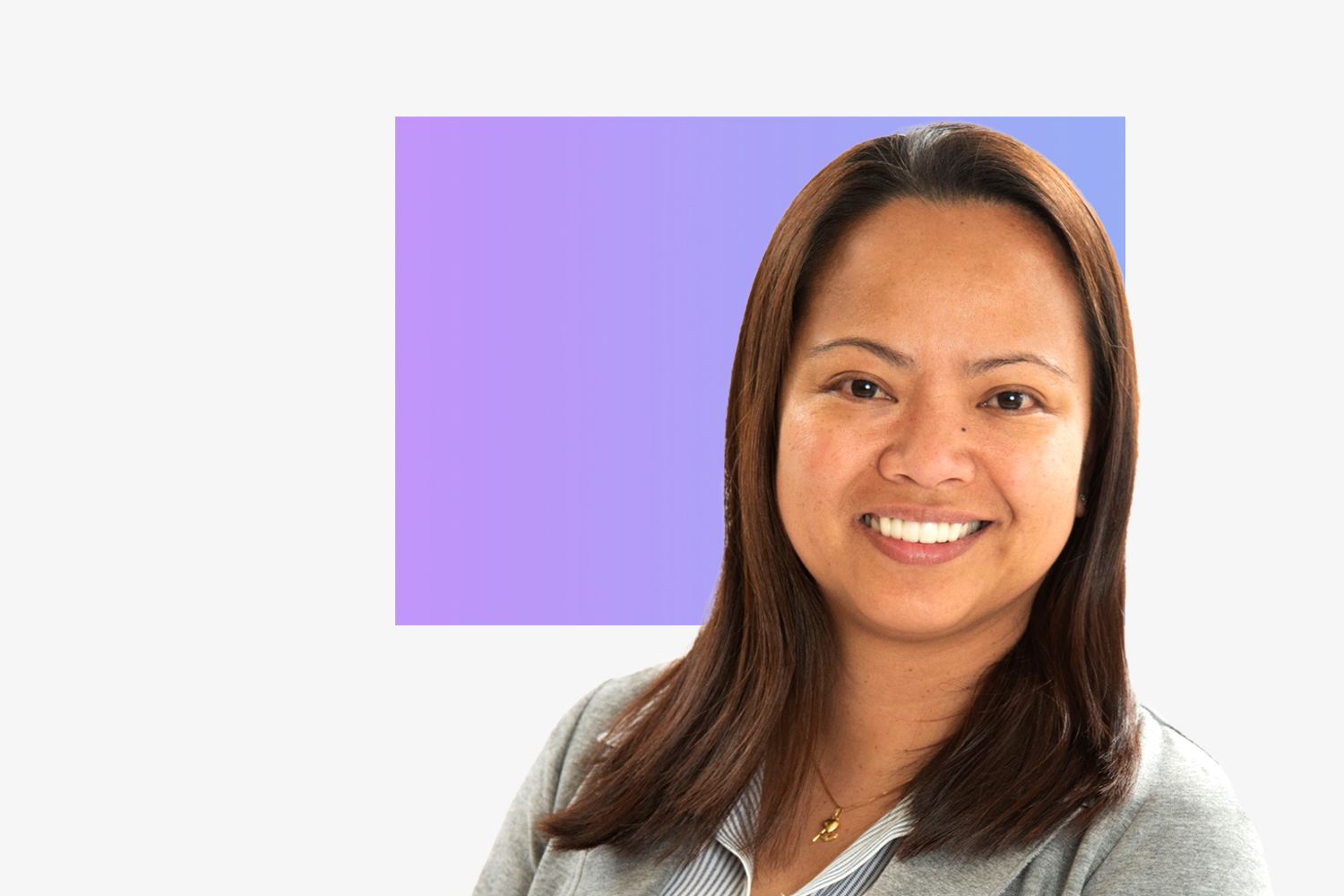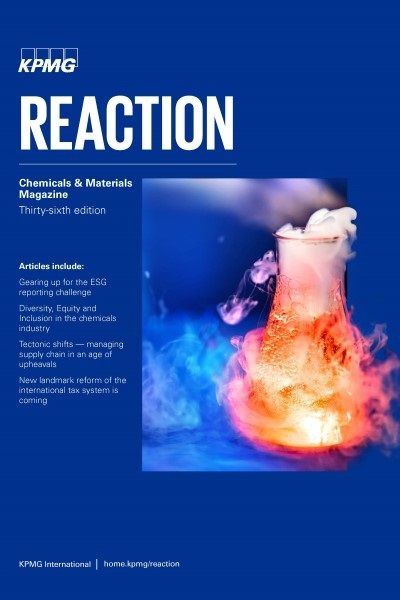Diversity and inclusion matters, in the chemicals industry as in every sector. In each issue of REACTION Magazine over the coming months, we’ll be spotlighting a senior industry leader of diverse background and talking about their personal journey and career path, and what the industry can do to drive up levels of inclusion.
This issue, we were delighted speak to Mel Wisel. From a modest family background in the Philippines, Mel is now a senior leader in the industry as Vice President, Chief Accounting Officer and Controller at the Chemours Company.

Tell us a little bit about yourself including what was your first job and how did you land it?
I was born and raised in the Philippines, and I am the youngest of a big family of eight. While I don’t claim to be the smartest in the room, I am passionate about what I do. I graduated from the University of Santo Tomas with a bachelor’s degree in accountancy and was recruited by the largest accounting firm in the Philippines, SGV. I worked there for a few years and decided to move to Singapore for an opportunity to work with PwC. Part of my decision to move was financial, as my Father was sick, but I spent the next three years with PwC in Singapore.
Then, after seeing many of my close friends moving to the U.S., I decided to try my luck, and in 2004, I got an opportunity with PwC in Philadelphia, PA. Choosing to take the role with PwC in the U.S. meant I had to start again at the senior associate level (from a manager level), but I did not mind that, and actually, it helped me become even better. From there, I moved my way to senior manager, and it was at that point that I realized I did not want to be a partner. It was a pivotal moment that set me on a direct course to move to the corporate environment.
What is the most challenging part about your current role and what is the best part of your role?
The most challenging part is transitioning from being hands-on on with a lot of things. I trust my people, but I also like to be part of the action. Also, given our global footprint, the cultural differences amongst my team present some challenges. Being able to relate to them, adapt and adjust my communication style are critical to earning their trust. Which leads me to the best part, the people I work with every day. I find it fulfilling that I get to lead and share the benefit of my knowledge and experience with our next generations of leaders and get to know them and learn from them.
What career accomplishments are you most proud of?
Becoming a Vice President and Chief Accounting Officer of Chemours, leading a global team, is a pretty big accomplishment! I am blessed to have great mentors who helped me throughout my career with Chemours to get to where I am at.
Also, the career choices I’ve made along the way, including making bold decisions to venture new paths and take on new life-enriching opportunities, are something I’m proud of. Those decisions made me a better person today. I have no regret, and would do it all over again.
Lastly, I’m also proud of simply knowing that I am capable of doing more than I thought. I know that I made my family proud, and I’m thankful that I can financially help some students in the Philippines to finish their college degrees.
During your career journey, did you have a mentor or champion for your career growth, and if so, what was the most memorable thing they did they help you?
I’m fortunate to have had many mentors and champions. Personally, I look to my family first and how my parents, second oldest sister, and husband provided mentorship in different stages of my life. My Father, who was a farmer by background, pursued an engineering degree. Growing up, we lived from pay-check-to-pay-check, and my Father used to tell me that education was the only thing he could give me. The only thing, but it’s the best thing, with my Mother as my cheer leader. My sister, who was a CPA too, taught me patience and perseverance. These are the key words that I believe helped me become successful in every endeavor. Keep trying no matter how hard it is or how many times you fail. And, of course, my husband. He is my confidence booster. In his nice little way, he helps me push myself out of my comfort zone.
There are a lot of people at work, from PwC to Chemours – too many names to mention – who formally and informally have been instrumental to me, and they helped me navigate different career paths.
I think it’s very important that we build relationships with the people in our workplace. They usually are the people that inspire me at work. I try to learn from them by focusing on the quality that inspired me. Knowing I can never do it the same way they did, but I can do it my own way with that inspiration in mind.
What was the most valuable career advice you have received?
Building relationships in the workplace is essential, but I think being humble is equally important. It helps us recognize our weaknesses, learn and grow from experiences, and see the strengths of others.
Can you tell us what Chemours is doing to support diversity and inclusion within the organization?
From Chemours’ founding in 2015, we have been committed to stepping outside of the traditional mold of chemical companies, including when it comes to Diversity, Equity, and Inclusion (DEI). It starts with the tone at the top. Leaders must believe in and be supportive of diversity and inclusion. At Chemours, our executives model the importance of DEI, and you’ll see that reflected in our board and executive team composition. When you see the commitment being lived at the highest levels of the company, it inspires the rest of the management to support and model that effort.
We put “Inspired People” as one of the pillars of our Corporate Responsibility Commitment goals, and we take a holistic approach. People must feel like they can be who they are and bring their true, authentic selves to work every day to contribute to their highest potential. Under our “Inspired People” goal is “Empowered Employees,” where we have set some very aggressive gender equity and ethnic diversity targets. Our approach goes beyond just numbers. It’s about creating the right culture and working environment for people to feel empowered.
We are an innovation company, and we believe some of the strongest innovation happens when you have teams composed of people with diverse backgrounds and experiences who feel confident to try different things and be supported.
Our commitment extends to how we approach philanthropy too. A significant part of our effort involves creating opportunities for people who may not otherwise have them. For example, when it comes to investing in science, technology, engineering, and math (STEM) education, Chemours has focused our efforts on supporting schools and areas that are economically disadvantaged, which often are largely minority populations, to create greater access to STEM education for students. We also launched a very successful scholarship program supporting students pursuing STEM fields at Historically Black Colleges and Universities (HBCUs). Chemours’ program was recently embraced more broadly across our industry in a program called FOSSI – the Future of STEM Scholars Initiative – which in its inaugural year awarded 151 four-year scholarships to students pursuing STEM fields at HBCUs.
When you look around the global chemicals industry, do you feel that there is enough representation of women and other diverse groups in senior leadership roles?
I think the industry is slowly getting there, but we still have a bit left to get there.
What more could be done by both the industry and government to help improve diversity? How could we encourage more women to follow science-based career paths, for example?
I think first we must invest in the community. The more students that see companies, like Chemours, investing in STEM education, the more we will see students inspired to pursue STEM education and careers. Also, I think it’s important to give opportunity at the school level to meet real people leading this change today.
As a female leader yourself from a diverse background, do you feel greater responsibility for championing diversity? Are there specific things you are doing to support and mentor the next generation of leaders in Chemours and in your community?
Yes, I think I owe it to them. I use day-to-day mentoring and coaching to engage in the diversity conversation and simply make myself available to others. I believe an open and honest conversation happens when you are just being yourself.
Is there anything else you think is important in improving diversity in the industry?
Awareness and education are a really good start. We should be aware of our biases and continually educate ourselves to be open to learning and appreciating different cultures and backgrounds. Also, investing in the community to create an avenue for more students to get a better education and increase the pool of future diverse leaders.
The email address you've entered is already tied to an existing account. Please enter your password to log in.
KPMG thought leadership is always available to our registered users
You’ve successfully logged in.
Please close this pop-up to return to the page.
Please provide the following information to register.




